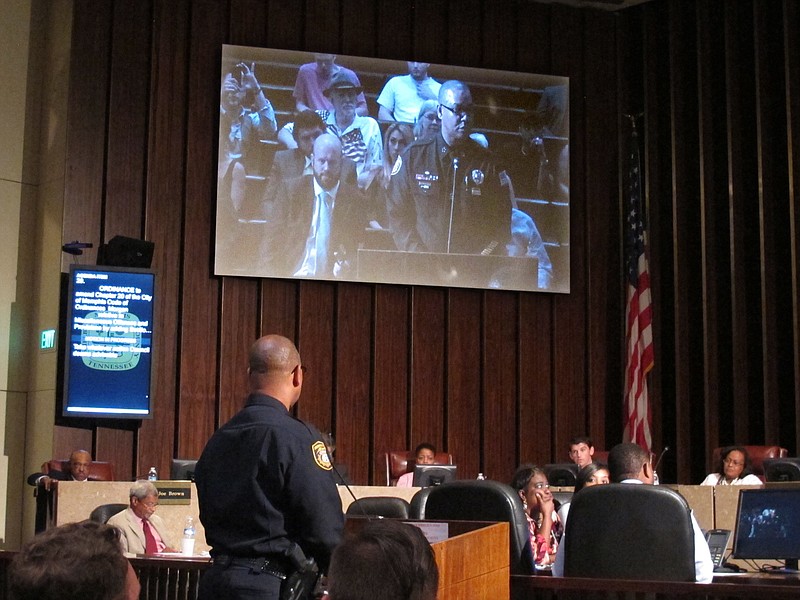MEMPHIS - The Memphis City Council on Tuesday narrowly approved an ordinance that will allow police to reduce the penalty for people who possess small amounts of marijuana.
The council voted 7-6 in favor of the measure after lengthy discussion from people on both sides of the issue, including marijuana decriminalization advocates and concerned citizens.
The measure states a police officer who comes across someone in possession of a half-ounce or less of marijuana has the option of issuing a civil citation for a $50 fine or community service, rather than arresting the individual. The individual would still have to appear at a later date before a judge, who would approve the fine or community service.
Such a penalty is in contrast to Tennessee law, which calls for people caught with a half-ounce of marijuana or less to face a misdemeanor criminal charge punishable by up to one year in jail and a $2,500 fine.
Memphis joins more than two dozen U.S. cities that have passed similar ordinances, and the second in Tennessee. The Nashville Metropolitan Council overwhelmingly approved a similar ordinance Sept. 20.
Supporters say the new approach to simple marijuana-possession offenses will allow officers to spend more time on the streets fighting serious crimes. Backers also say reduced penalties would mean fewer people in jail, easing the burden on taxpayers. Advocates for marijuana decriminalization say such ordinances also will help eliminate racial disparities in marijuana-related arrests.
A September 2014 report by the Center on Juvenile Justice and Criminal Reform, citing statistics in five states that implemented marijuana reforms, concluded that blacks were more likely to be arrested for marijuana offenses than all other races and ethnicities.
"We no longer can continue doing the exact same thing we've been doing and trying to get a different result," said council member Patrice J. Robinson, who voted to approve the measure. "Let's try something new."
Council members Berlin Boyd and Martavius Jones, co-sponsors of the measure, said the majority black city of Memphis needed to pass this ordinance to reduce the number of African-Americans who get permanent marks on their criminal record for being arrested for simple marijuana possession, hurting their chances to get jobs and loans.
However, Boyd said there has been a misconception in the community that the ordinance does more than just allow police officers to use their discretion by issuing a civil citation rather than a criminal charge.
"This is not a measure to legalize marijuana," Boyd said.
Council member Janis Fullilove, who voted against the ordinance, worried about people walking up to police officers and smoking marijuana in front of them, thinking it is now legal.
"It's going to give some people free reign," she said.
Some state lawmakers have questioned whether the ordinances and their reduced punishments conflict with the stiffer penalties required by state law. Republican State Rep. William Lamberth, chairman of the House Criminal Justice Committee, has said he is considering filing a bill in the next legislative session that would withhold state highway funds from cities that fail to enforce the state marijuana law.
Council member Worth Morgan, who also voted against the measure, questioned the amount of marijuana mentioned in the ordinance. He said a half ounce "doesn't seem like casual use or a small amount."
Memphis Police Director Michael Rallings, who has expressed concerns about the ordinance but said during the meeting that he neither opposed nor advocated its passage, also said a half-ounce is too much. He also worried whether the court would have the capacity to handle the fine and community service process.
